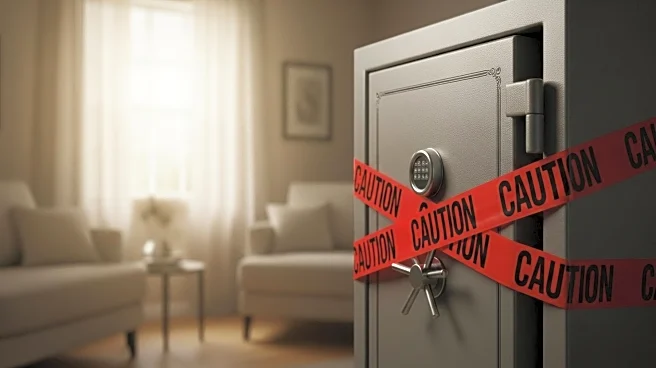What's Happening?
The issue of psychiatric holds and their impact on gun rights is under scrutiny following recent mass shootings. Federal and state laws prohibit individuals involuntarily committed by judicial order from purchasing firearms. However, emergency hold procedures, which allow individuals to be held for up to 72 hours without a judicial order, do not trigger a loss of gun rights in many states, including Nevada. This loophole allowed Shane Tamura, involved in a recent shooting, to legally purchase a firearm despite previous psychiatric holds. Some states, like California, impose temporary restrictions on gun rights following emergency holds, but these measures are not universally applied.
Why It's Important?
The current legal framework regarding psychiatric holds and gun rights presents challenges in preventing individuals with mental health issues from accessing firearms. The lack of uniformity across states means that individuals deemed a public safety risk can still purchase guns, potentially leading to tragic outcomes. The debate highlights the need for balancing public safety with individual liberties and the importance of revising gun laws to address mental health concerns. The issue also raises questions about the effectiveness of background checks and the role of mental health treatment in gun policy.
What's Next?
There is a call for states like Nevada to adopt measures similar to California, where emergency holds result in temporary gun rights suspension. Additionally, there is advocacy for federal law amendments to include emergency holds in background check disqualifiers and close loopholes related to concealed-carry permits. These changes aim to prevent individuals with mental health risks from accessing firearms, potentially reducing the incidence of mass shootings. The discussion may lead to legislative action at both state and federal levels to enhance public safety while respecting individual rights.








